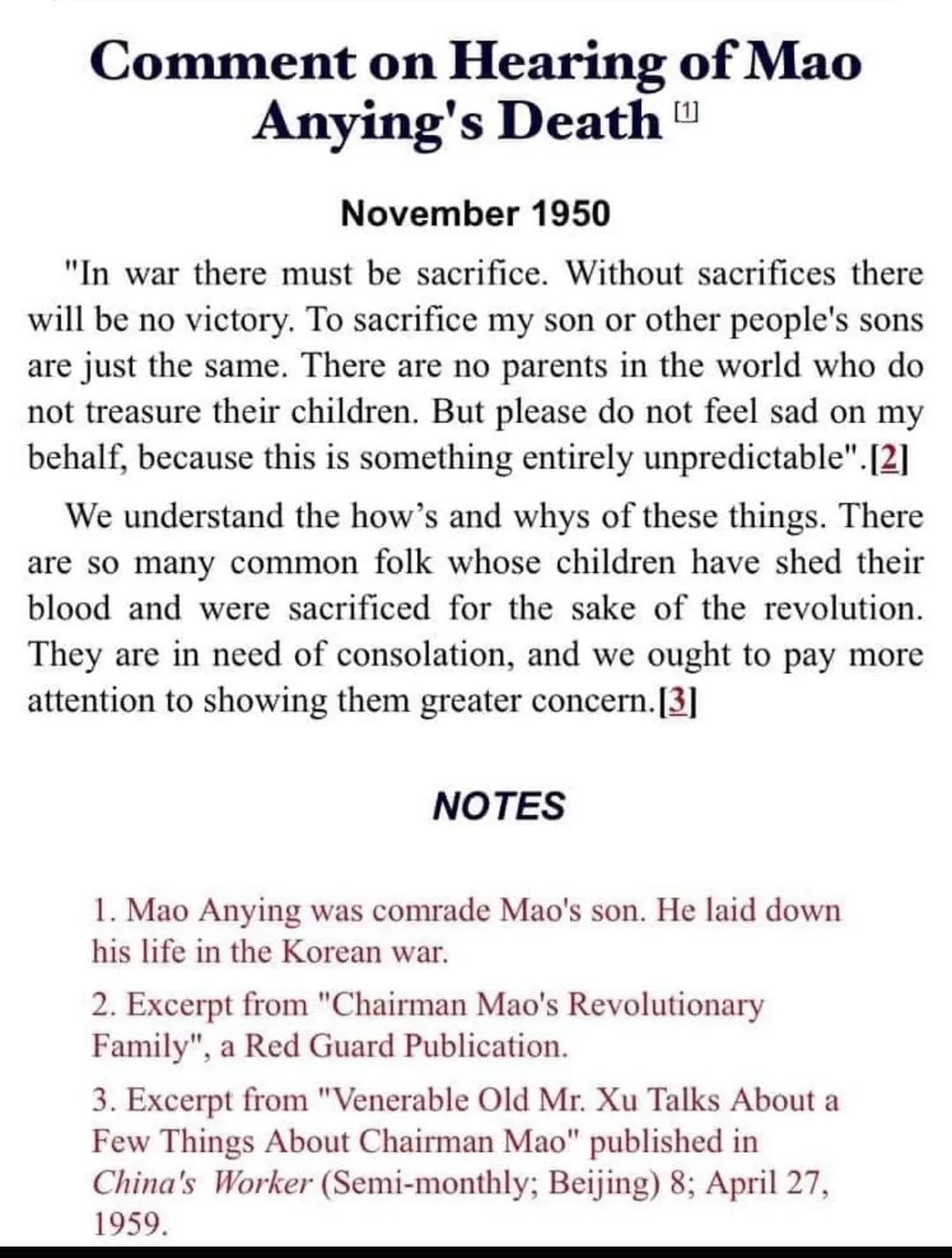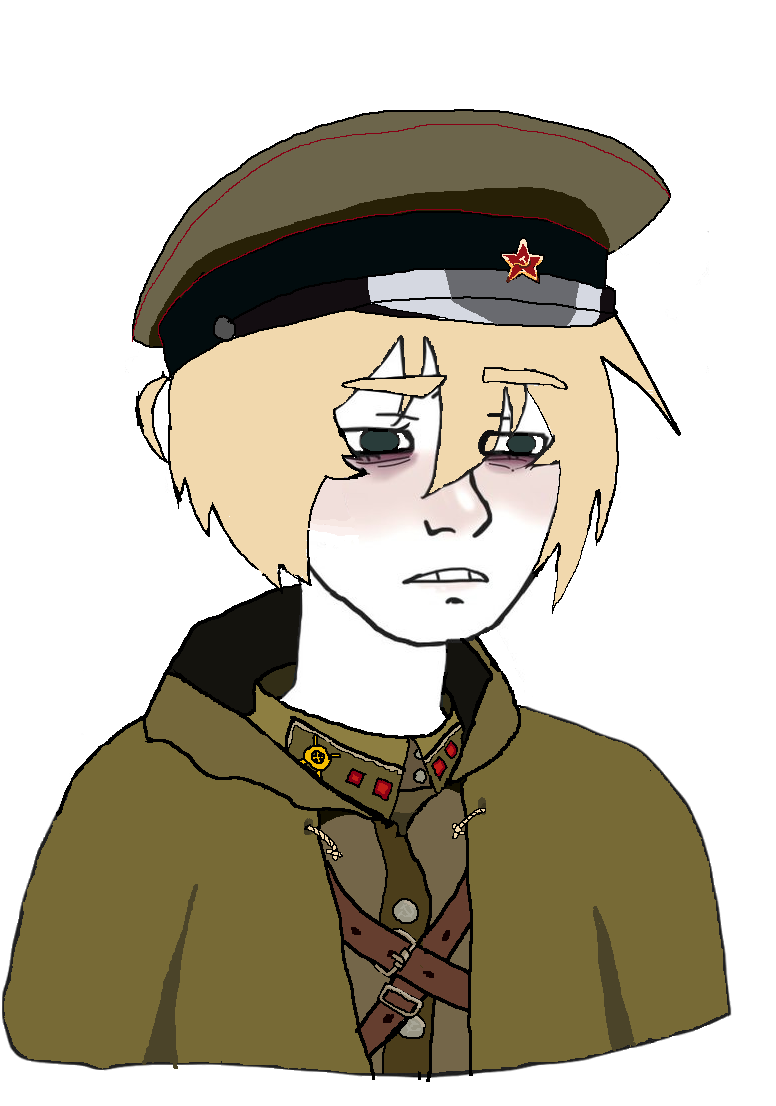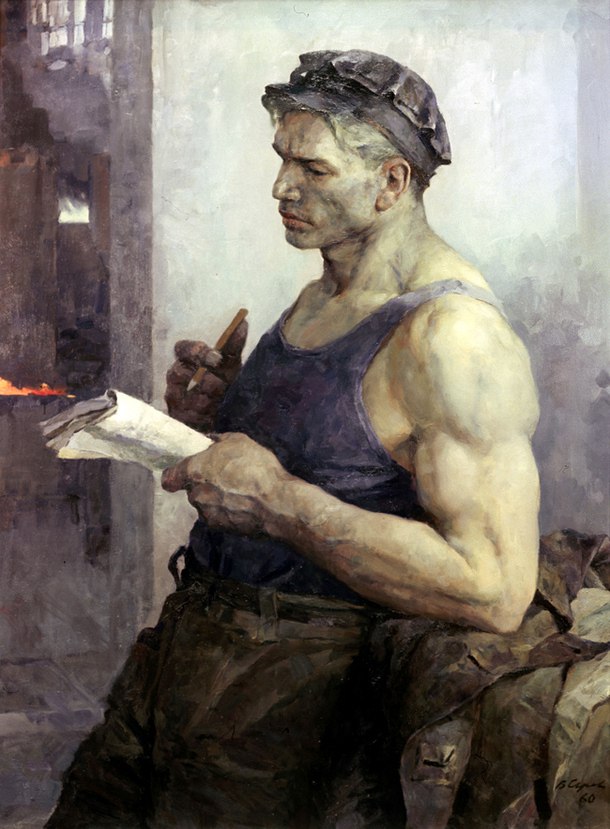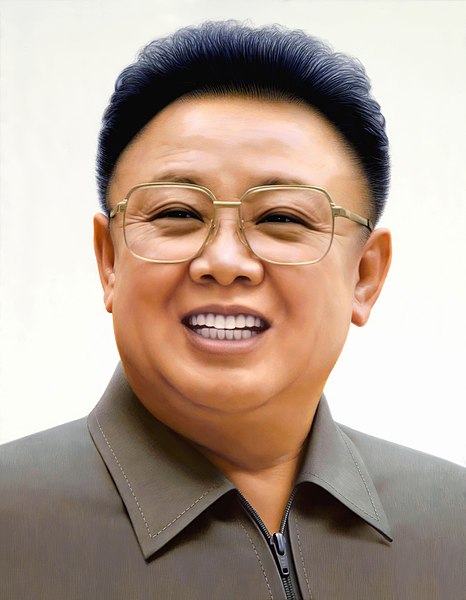His public statement:

Note: the anecdote is sourced from “Mao” by Michael Lynch, a biography I have not read.
This is a really insightful view into Mao’s life and totally counter to the idea we’re sold of him as an uncaring father and a totally cold, calculating larger-than-life narcissist.
Reminds me when I first read Molotov’s account of Stalin being informed about his son Yakov’s death. He spent several hours over the course of the next several days refusing to talk to anyone or eat, instead simply staring at his son’s photograph on his desk. While he of course had to get back to his work, for the rest of his life he would be caught at moments deep in thought while gazing at the same photograph.
While he is portrayed in the Western media as having despised his son, the only time he was asked by an advisor about his son after his death, Stalin only responded that Yakov was a true man, and that his life had treated him too unjustly.
Wow. After reading the excerpt about Mao it did call to my mind that same propaganda painting Stalin as an uncaring father, and I wondered if that were also untrue. Thanks for sharing.
Is this described in ‘Molotov Remembers’? I haven’t got round to reading it yet unfortunately
o7
Heartbreaking… and shows that he would not spare himself the pain felt by families of his countrymen, in the same way that western nepotist rulers exempt their children from all danger in times of war, while being willing to sacrifice hundreds of thousands of the poor.
This was portrayed very movingly in The Battle at Lake Changjin.
Soldier tasked with keeping records of deaths in the company: “Deputy commander Deng, we don’t have any information on Secretary Liu. Who was he? What was his full name?”
We then cut to a shot of Mao, clearly heartbroken and without his perennial cigarette, walking back and forth in his garden.






